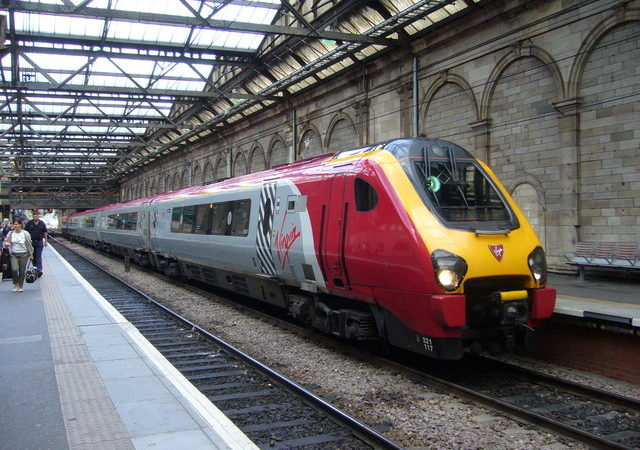In the wake of rail fares rising yet again, our privatised transport system can no longer be deemed fit for purpose.

Let’s face it: there is something very wrong with a transport system that doesn’t facilitate people getting to work every day – without forcing them to pay out such a large chunk of their wages in ever-rising fares.
In other countries in Europe, commuters pay approximately 2-4% of their salaries towards their journey to work. Here in the UK, that figure is a whopping 10-20%. A classic commuter journey, 35 minutes from Chelmsford to London is £381 a month, about 13% of the average wage.
With 75% of Britain’s railways in overseas hands, it is the British people who are subsidising state-run rail operations across the continent.
Public transport is is not a luxury, It is a vital economic necessity underpinning all other business and activity which should enable workers and goods to move around the country efficiently. We all benefit from public transport even if we don’t use it, because someone else we rely on – our nurses, our support staff, and even the person who fixes our computer – probably does.
There’s a health cost too. Under Boris Johnson, the London Transport operating grant was cut – meaning London is one of the only major cities in the world running without a transport subsidy. By squeezing the money available to invest in public transport – which would ease congestion and prevent pollution – the government forces everyone’s health to suffer: nearly 95% of the capital’s population live in areas that exceed the pollution limit by 50% or more.
While we are told by the Tories we can’t have a state-run rail service in the UK, every day we are getting on trains and buses that are run by other countries’ state transport companies: those of the Netherlands, Germany and Italy who are all reinvesting profits made here into their state run rail networks.
But here’s the difference: trains and tracks in Europe are getting better, quicker and more advanced while ours are lagging behind. Germany’s ICE Sprinter can travel at up to 200mph, whereas our trains’ top speeds are 140mph, and only Southeastern routes are allowed to travel at over 125mph because of the safety requirements necessary.
So who is benefiting from the current system?
It’s not railway workers. According to recruitment agency Total Jobs in December 2017, the average salary for railway jobs has fallen by 4%. And it’s not commuters, nor have we a top-class rail system for the price tag.
In fact, it’s being creamed off and into the pockets of some of the richest people in Britain. Last year the Daily Mirror found that ten private companies involved in running train services made £407m in profits in 2016 alone.
Instead of being ploughed back into the network, improving services and cutting rail fares, much of this cash was paid out in dividends to wealthy owners like Brian Souter and Richard Branson. Indeed, in a biography of Branson, Tom Bower repeats the phrase used by one of the billionaire’s staff while weighing up the West Coast deal: “It’s a license to print money.”
Take the East Coast line. Andrew Adonis’s public service letter of resignation from Chair of the National Infrastructure Commission at the weekend made it very clear Grayling’s bailout of StageCoach there is not in the public interest, and will only bloat the obese back accounts of these two multi-billionaires still further. Adonis is right: Grayling should be sacked.
In the year to March 2014 – the last financial year before it was re-privatised – East Coast paid back £225m to the government. The company also made pre-tax profits of £8.4m – a rise of 40% – which were paid as a dividend to the Department for Transport. And just under 20m passenger journeys were made with East Coast during 2014, generating revenues of £720m.
Re-privatising the successful, popular and profit-making East Coast line was the most blatantly dogmatic thing the Tories did.
Given the mind-boggling absurdity of this farce, public ownership is the only viable alternative.
Our union TSSA, the Labour Party and the Trade Unions Congress (TUC) all advocate bringing the railways back into public ownership franchise by franchise as they run out.
We have the expertise and the skilled workforce who form our membership. It takes just political will to give now a well-run and affordable public transport again without profits going into rich people’s pockets or to benefit European passengers elsewhere.
This isn’t pie in the sky thinking. We can have a People’s Railway. It’s time to rebuild our rail industry as a national, public asset.
Manuel Cortes is General Secretary of the Transport Salaried Staffs’ Association
See also: We pay five times the rest of Europe for our trains




One Response to “Why we need to renationalise the railways”
Malcolm Wallace
Only through public ownership will we have a railway network that is co-ordinated and run in the interests of the nation rather than those who are simply seeking to gain monetary profit.